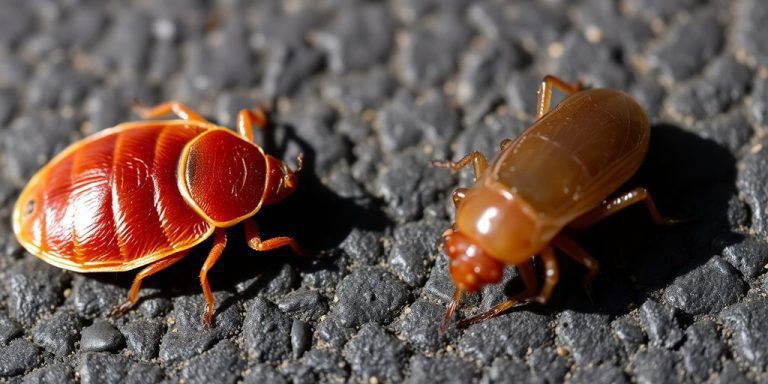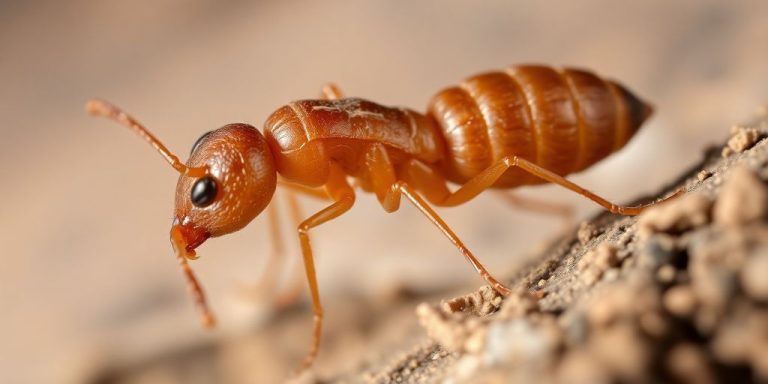Pest and termite problems can be a big headache for homeowners in Omaha. Knowing about the types of pests and termites in the area, along with effective ways to prevent and treat infestations, is essential. This article covers everything from common pests to how to choose the right pest control service, making it easier for you to protect your home.
Key Takeaways
- Omaha has a variety of common pests and termites that can harm homes.
- Regular checks and good home care can help keep pests away.
- There are eco-friendly and safe treatment options available.
- Choosing a reliable pest control service is important for effective treatment.
- Community programs can help everyone stay informed about pest control.
Understanding Pest and Termite Challenges in Omaha
Common Pests Found in Omaha
Omaha is home to a variety of pests that can cause problems for homeowners. Some of the most common pests include:
- Ants
- Cockroaches
- Spiders
- Rodents
These pests can invade homes, especially during warmer months, making it essential to be aware of their presence.
Termite Species Prevalent in the Area
In Omaha, two main types of termites are often found:
- Eastern Subterranean Termites
- Formosan Termites
Termites can cause significant damage to wooden structures if not controlled. Homeowners should be vigilant about signs of termite activity, such as mud tubes or damaged wood.
Seasonal Pest Activity
Pest activity in Omaha varies with the seasons. Here’s a quick overview:
- Spring: Increased ant and termite activity as they emerge from hibernation.
- Summer: Peak season for many pests, including mosquitoes and flies.
- Fall: Rodents seek shelter indoors as temperatures drop.
- Winter: Some pests, like cockroaches, may remain active indoors.
Keeping your home clean and well-maintained can help prevent pest infestations. Regular inspections are key to catching problems early.
In summary, understanding the challenges posed by pests and termites in Omaha is crucial for effective management. By being aware of common pests, termite species, and seasonal activity, homeowners can take proactive steps to protect their properties.
Effective Prevention Strategies for Pest and Termite Control

Regular Inspections and Monitoring
Regular inspections are crucial in keeping pests and termites at bay. Homeowners should schedule inspections at least twice a year. Early detection can save you a lot of money and stress. Here are some key points to consider:
- Look for signs of pest activity, such as droppings or damage.
- Check for moisture in areas like basements and attics, as pests are attracted to damp places.
- Use monitoring devices to catch infestations early.
Landscaping Tips to Deter Pests
Your yard can either attract or repel pests. Here are some landscaping tips to help keep them away:
- Keep plants trimmed and away from the house.
- Use gravel or rocks instead of mulch to reduce moisture.
- Plant pest-repelling plants like marigolds or lavender.
Sealing Entry Points in Homes
Pests can enter your home through tiny openings. Sealing these entry points is essential. Here’s how:
- Inspect windows and doors for gaps and use weather stripping to seal them.
- Fill cracks in walls and foundations with caulk.
- Install screens on vents and chimneys to keep pests out.
Taking preventive measures is the best way to avoid pest problems. By being proactive, you can protect your home and family from unwanted guests.
Innovative Treatment Options for Pest and Termite Infestations

Eco-Friendly Pest Control Solutions
Many homeowners are looking for green alternatives to traditional pest control methods. Eco-friendly solutions can be effective and safer for families and pets. Some popular options include:
- Natural repellents like essential oils
- Biological control using natural predators
- Organic pesticides that break down quickly in the environment
Chemical Treatments and Safety
While eco-friendly options are great, sometimes stronger measures are needed. Chemical treatments can effectively eliminate pests but must be used carefully. Here are some key points to consider:
- Always hire a professional for application.
- Ensure the area is well-ventilated during treatment.
- Follow safety guidelines to protect your family and pets.
Advanced Termite Baiting Systems
Termites can cause serious damage to homes, so it’s important to act quickly. Advanced baiting systems are a modern solution that targets termites effectively. These systems work by:
- Attracting termites to bait stations
- Delivering slow-acting insecticides
- Reducing the overall termite population over time
Using innovative treatment options can help keep your home safe from pests and termites. Professional services like Flatline Pest Control offer tailored solutions to meet your needs, ensuring a pest-free environment.
By understanding these innovative treatment options, homeowners can make informed decisions to protect their properties from pest and termite infestations.
Choosing the Right Pest and Termite Control Service
When it comes to selecting a pest and termite control service, it’s important to make an informed choice. Finding the right provider can save you time and money. Here are some key points to consider:
Evaluating Service Providers
- Check for licenses and certifications.
- Read customer reviews and testimonials.
- Ask about their experience with specific pests.
Questions to Ask Before Hiring
- What methods do you use for pest control?
- How do you ensure safety for my family and pets?
- What is your guarantee or follow-up policy?
Understanding Service Agreements
- Look for clear terms and conditions.
- Ensure there are no hidden fees.
- Understand the duration and scope of the service.
Choosing a reliable pest control service is crucial for maintaining a safe and healthy home environment.
By following these guidelines, you can make a better decision and ensure that your pest problems are handled effectively. Remember, prevention is always better than cure!
Long-Term Maintenance and Monitoring
Scheduled Follow-Up Visits
Regular follow-up visits are essential for keeping your home pest-free. These visits help in:
- Checking for any new signs of pests.
- Ensuring that previous treatments are still effective.
- Making necessary adjustments to pest control strategies.
Consistent monitoring can save you money in the long run by preventing larger infestations.
Homeowner Responsibilities
As a homeowner, you play a crucial role in pest management. Here are some responsibilities to keep in mind:
- Maintain cleanliness in and around your home.
- Report any signs of pests to your pest control service promptly.
- Follow the advice given by your pest control professionals.
Technology in Pest Monitoring
New technology is changing how we monitor pests. Some tools include:
- Smart traps that alert you when pests are caught.
- Apps that help track pest activity in your area.
- Sensors that detect pest movement in real-time.
Using technology can make pest control easier and more effective.
In summary, long-term maintenance and monitoring are vital for effective pest control. By scheduling regular visits, taking responsibility, and utilizing technology, you can keep your home safe from pests. Remember, early detection is key to preventing bigger problems later on.
Additionally, be aware of invasive plants like pokeweed, which can attract pests. Managing such plants is important for maintaining a pest-free environment.
Community Involvement in Pest and Termite Management

Neighborhood Watch Programs
Community members can work together to keep an eye out for signs of pest and termite problems. By forming neighborhood watch programs, residents can share information and alert each other about any unusual activity. This collaboration can help catch infestations early, preventing larger issues down the line.
Local Government Initiatives
Local governments often play a key role in pest management. They may offer resources such as:
- Free pest control workshops
- Information on local pest trends
- Support for community clean-up events to reduce pest habitats
These initiatives can empower residents to take action against pests.
Educational Workshops and Resources
Education is vital in pest control. Communities can benefit from:
- Workshops on identifying pests and termites
- Tips for maintaining a pest-free home
- Resources for safe pest control methods
By working together, communities can create a healthier environment and reduce the risks associated with pest infestations.
Economic Impact of Pest and Termite Infestations

Pests and termites can cause significant damage to homes and properties, leading to costly repairs. The financial burden of infestations can be overwhelming for homeowners. Here are some key points to consider:
Cost of Damage and Repairs
- Termites can cause structural damage that may require extensive repairs.
- The average cost of termite damage repair can range from $3,000 to $8,000.
- Pests like rodents can chew through wires, leading to electrical issues and fire hazards.
Impact on Property Values
- Homes with a history of pest infestations may sell for less.
- Buyers often hesitate to purchase properties with known pest problems.
- A pest-free home can maintain its value better in the market.
Insurance Considerations
- Many homeowners’ insurance policies do not cover pest damage.
- Homeowners may need to invest in additional coverage for pest-related issues.
- Regular pest control can help prevent insurance claims and keep premiums lower.
| Type of Infestation | Average Repair Cost | Impact on Value |
|---|---|---|
| Termites | $3,000 – $8,000 | Decrease |
| Rodents | $1,000 – $3,000 | Decrease |
| General Pests | $500 – $2,000 | Minimal |
Regular pest control is essential to protect your home and finances. Taking preventive measures can save you from future headaches and expenses.
Conclusion
In summary, dealing with pests and termites in Omaha requires a mix of smart choices and effective actions. By understanding the signs of an infestation and knowing when to call for help, homeowners can protect their spaces. Regular inspections and preventive measures are key to keeping these unwanted guests away. With the right tools and knowledge, anyone can take charge of their home’s safety. Remember, it’s always better to act early and stay informed to keep your home pest-free.
Frequently Asked Questions
What are common pests in Omaha?
In Omaha, you might find pests like ants, cockroaches, and spiders. These bugs can invade homes and cause trouble.
How do I know if I have termites?
Signs of termites include hollow-sounding wood, mud tubes on walls, and discarded wings. If you see these, you should call a pest expert.
What can I do to prevent pests?
To keep pests away, make sure to clean your home regularly, seal any cracks, and store food properly. These steps can help a lot!
Are there safe pest control options?
Yes, there are eco-friendly pest control options available. These methods use natural ingredients that are safer for your family and pets.
How often should I have pest inspections?
It’s a good idea to have pest inspections at least once a year. This helps catch any problems early before they get worse.
What should I ask a pest control service?
When choosing a pest control service, ask about their experience, the methods they use, and if they offer guarantees for their work.



